Harvest Time in Iowa—
With a dedicated Seed Expert…
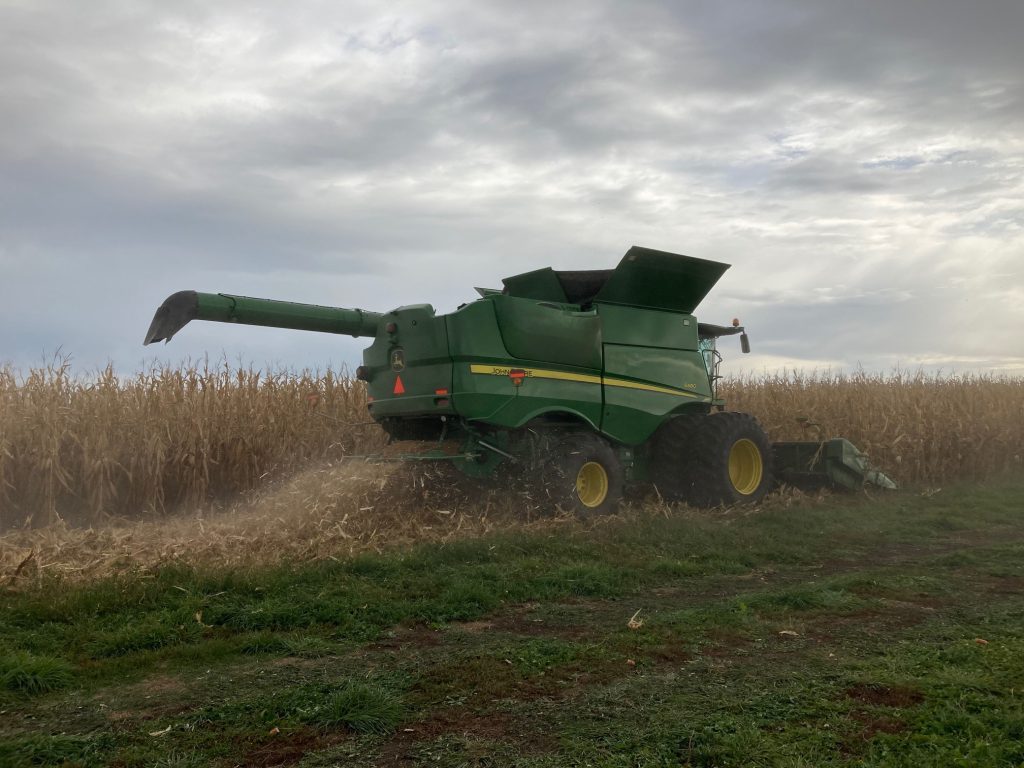
October 2021 Harvest at Des Moines Area Community College’s (DMACC) Farm. Photo by Mike Delaney
After several weeks of drought conditions, many Iowa farmers are pleasantly surprised by their yields. We had the opportunity to visit IWL’s Des Moines Chapter President, Doug Pooch, harvesting corn at Des Moines Area Community College’s (DMACC) Farm in Ankeny. There are more than a dozen seed companies who have research plots on the farm and Wyffels is one of them.
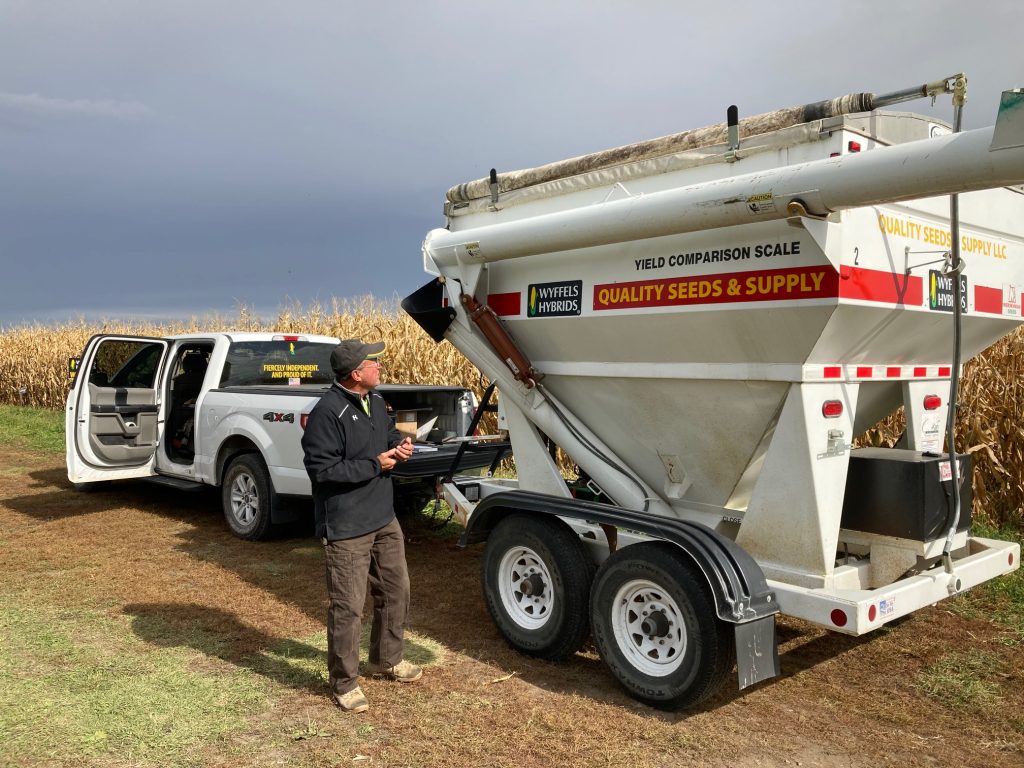
Doug Pooch, Harvesting Wyffels Hybrid corn in October 2021. Photo by Mike Delaney
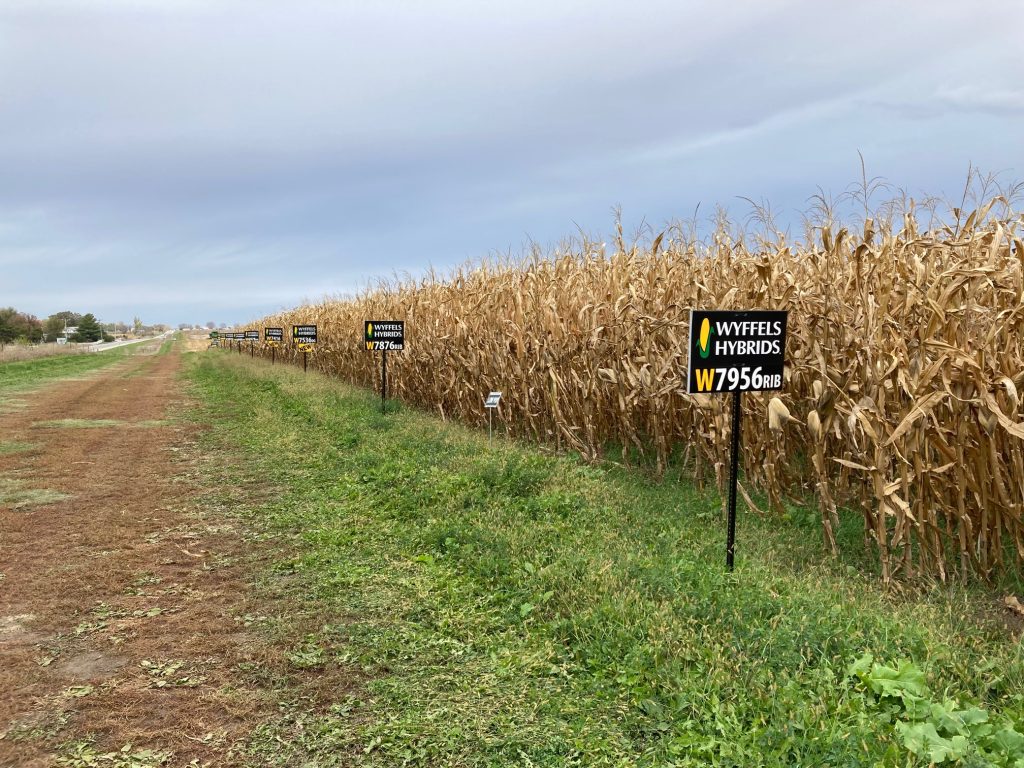
Wyffels Hybrid’s Corn Test Plot at DMACC’s farm. Photo by Mike Delaney
Doug is a full-time certified crop advisor and sale representative for Wyffels Hybrids, Inc. He grew up on a farm and has 45 years in the seed business. Doug’s dedication and enthusiasm resonates with those who spend any time with him. He oversees this project in addition to supporting more than 100 other farm customers, helping them develop management plans.

October Harvesting Wyffels Corn at DMACC’s farm. Photo by Mike Delaney

Combine Harvesting with DMACC’s farm manager, Michael King who is sporting a Wyffel’s hat. Photo by Mike Delaney
DMACC has dedicated 100 acres to corn test plots for student teaching and research. During the past 15 years, Doug has had the opportunity to participate with researchers, students and farmers on this demonstration farm. Agribusiness students learn first hand from participating with farming practices from seed science, production management, harvesting, marketing, and analyzing data. All of this knowledge is shared with the latest technology in precision agriculture.
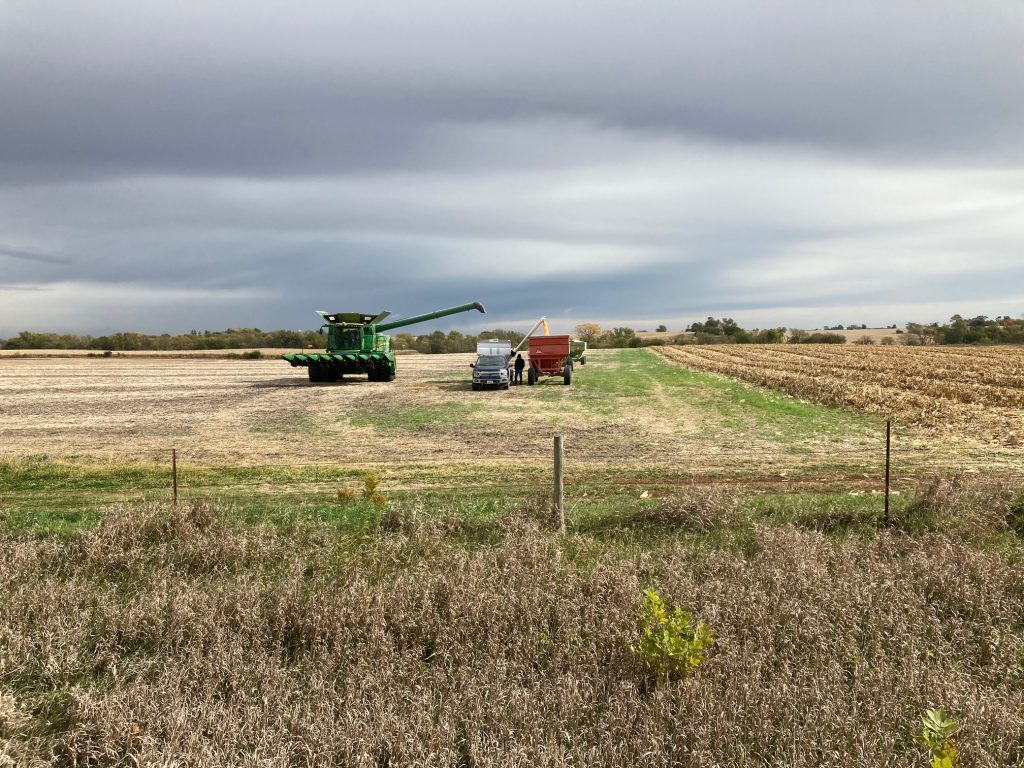
October 2021 Harvesting Wyffel’s corn at DMACC’s Farm. Photo by Mike Delaney
“Soil sampling and analysis are key to good farming practices,” says Doug. Proper application of fertilizers, cover crops, no-till and other conservation practices are becoming more common amongst mainstream conventional farmers, according to Doug. Farmers may cut back on total fertilizer applications if soil tests and economics allow. Grid sampling fields allow variable rate applications that can lower total rates for fields. Doug mentioned that most of the fertilizers have doubled in price this past year and farmers will cut back on applications just because of the increased costs.
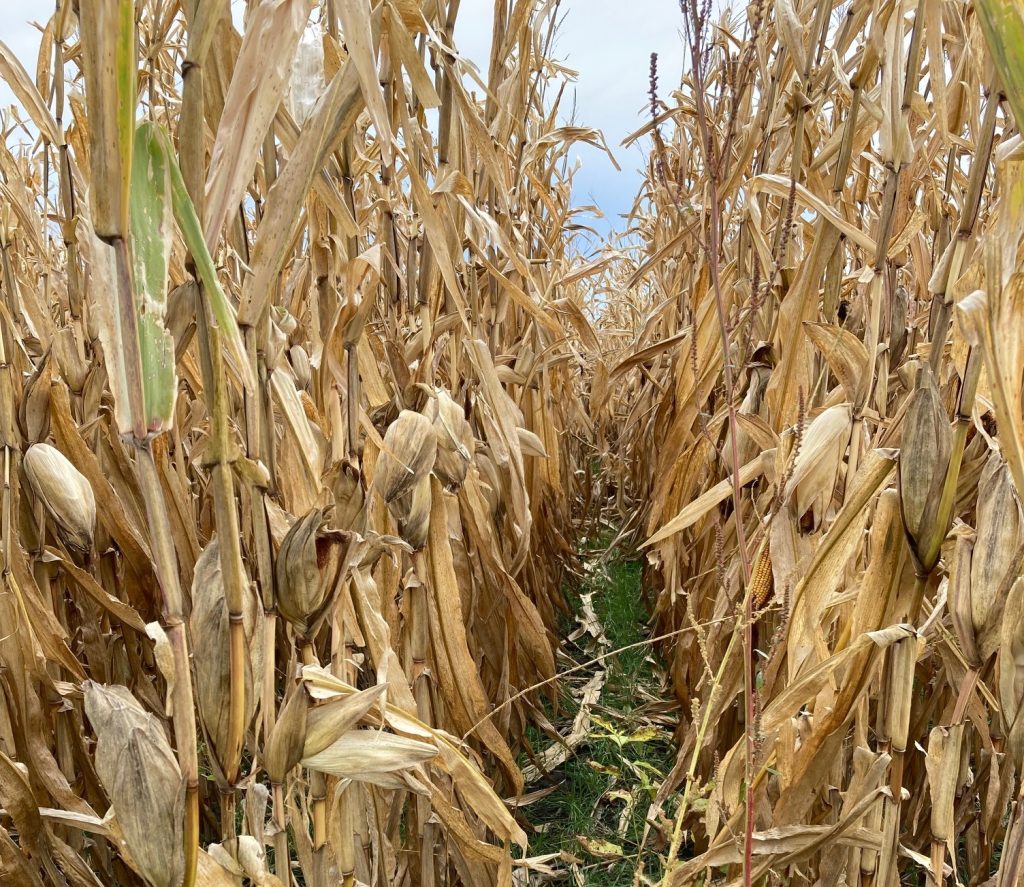
October 2021 Cover crops between rows of Whyffel’s corn. Photo by Mike Delaney
When asked about Iowa’s future with major water quality issues, Doug is optimistic that we’ll make progress because at the end of the day farmers want productive soils and clean water, he says. Positive reinforcement motivates good conservation practices. Individuals like Doug have the opportunity to influence positive changes on Iowa’s landscape. We’d like to acknowledge and thank Doug for all his conservation contributions and for heading up the IWL’s Des Moines Chapter’s Annual Farmer Appreciation Nights, where farmers are recognized for doing good conservation practices on their land.
Save Our Streams in Iowa—
The IWL turns 100 years old in 2022. To help celebrate this anniversary, The Des Moines Chapter is heading up an effort to expand the Izaak Walton League’s SOS (Save our Streams) program throughout Iowa. This is the only nationwide program training volunteers to protect waterways from pollution and to bring information about water quality to their communities.
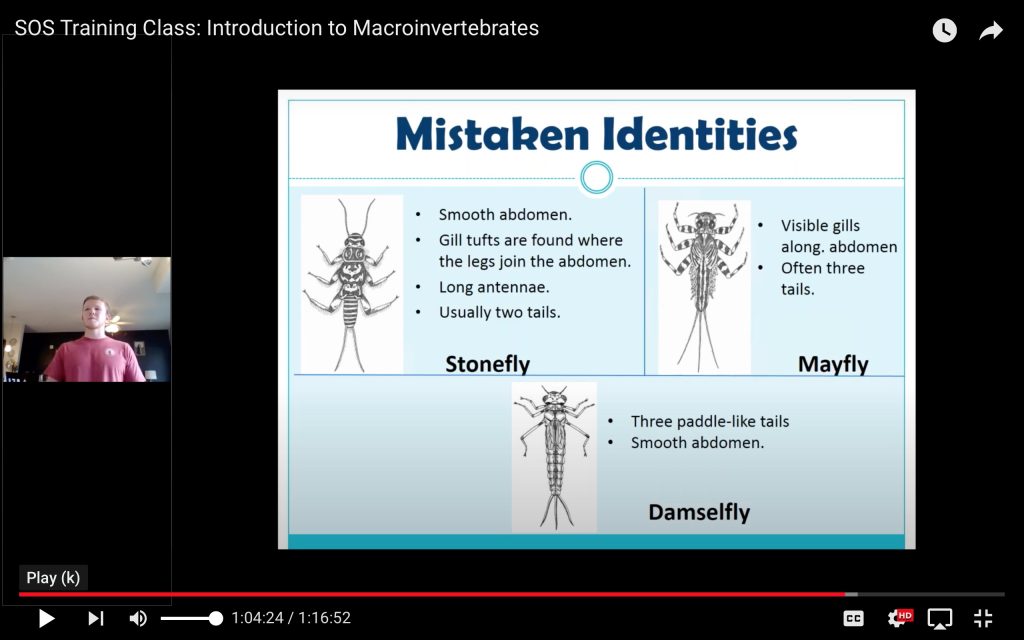
Identifying scary water bugs (Macroinvertebrates) on Halloween.
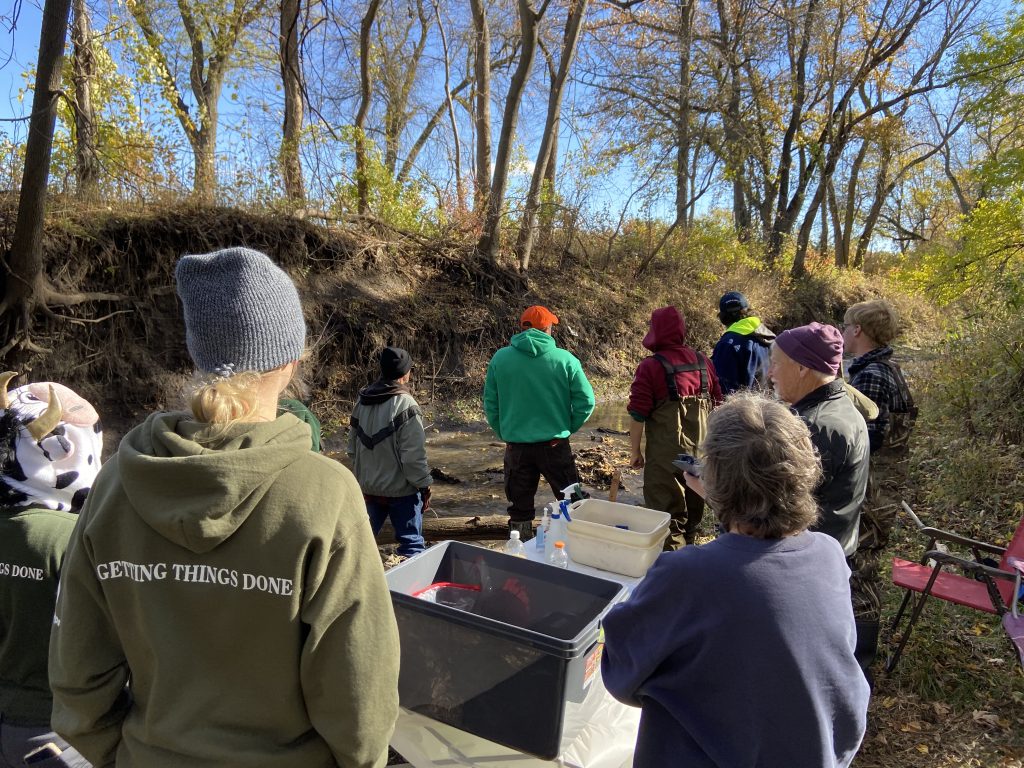
Save Our Streams trainees assessing Frink Stream in Water Works Park. Photo by Christine Curry
Connecting citizens to their watershed—
Our last outdoor training took place Sunday, October 31st. Participants were joined by Iowa’s certified trainer, Susan Heathcote, who conducted the training to collect water quality data, conduct chemical tests, and identify aquatic macroinvertebrates or “stream bugs”. Now that this group has completed their streamside training, they will complete the on line tests. Once they pass their on-line tests… This group of trainees will be SOS certified community stream monitors for Central Iowa!
The SOS training program is family friendly and sponsored by the IWL’s Des Moines Chapter, Panora Conservation Chapter and with help from the Raccoon River Watershed Association’s (RRWA).

SOS Trainer Susan Heathcote with Doug Pooch assessing results of Phosphate sample. Phosphorus is an essential nutrient for plants and animals and is usually present in natural waters as dissolved orthophosphate. Photo by Christine Curry
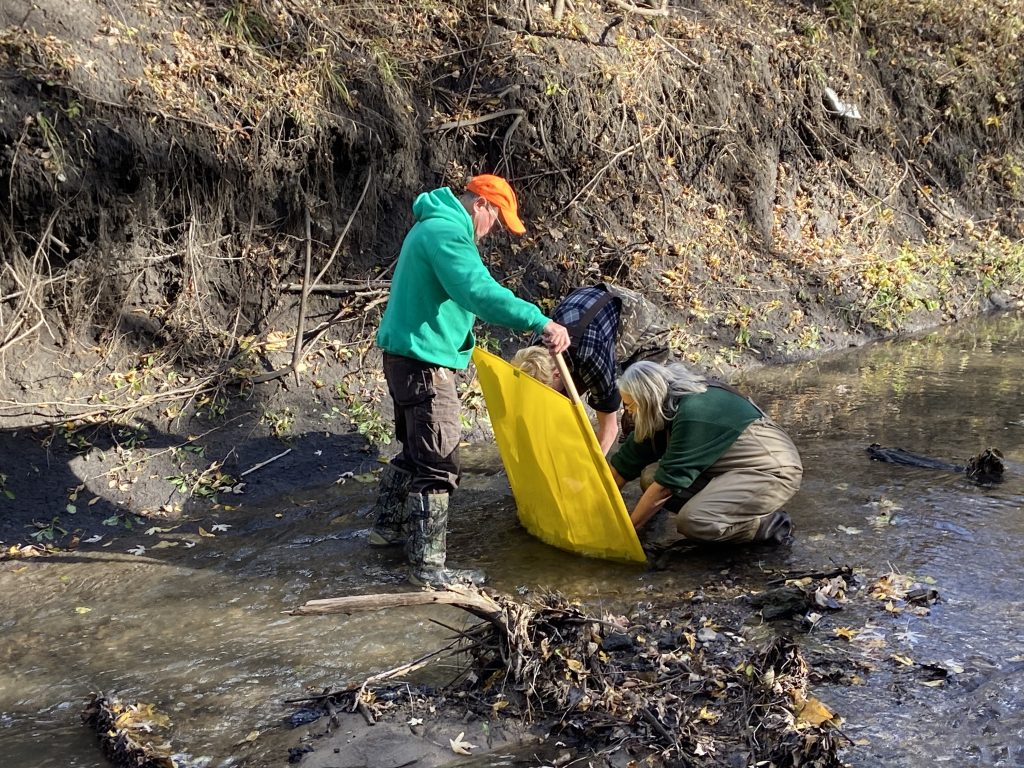
Biological Monitoring is part of the SOS protocol. A Kick-siene net is used to collect macroinvertebrates for a rocky bottom sampling. Photo by Christine Curry
Stay tuned for Spring 2022 trainings. In the meantime, please take advantage of the online training modules which will allow you to complete your SOS certification after attending a field training in Spring 2022!
Robin Fortney’s October 2021 snaps—
Under a beautiful sky filled with sun and big fluffy clouds, walk the trails on the Henry A. Wallace birthplace farm near Orient, Iowa
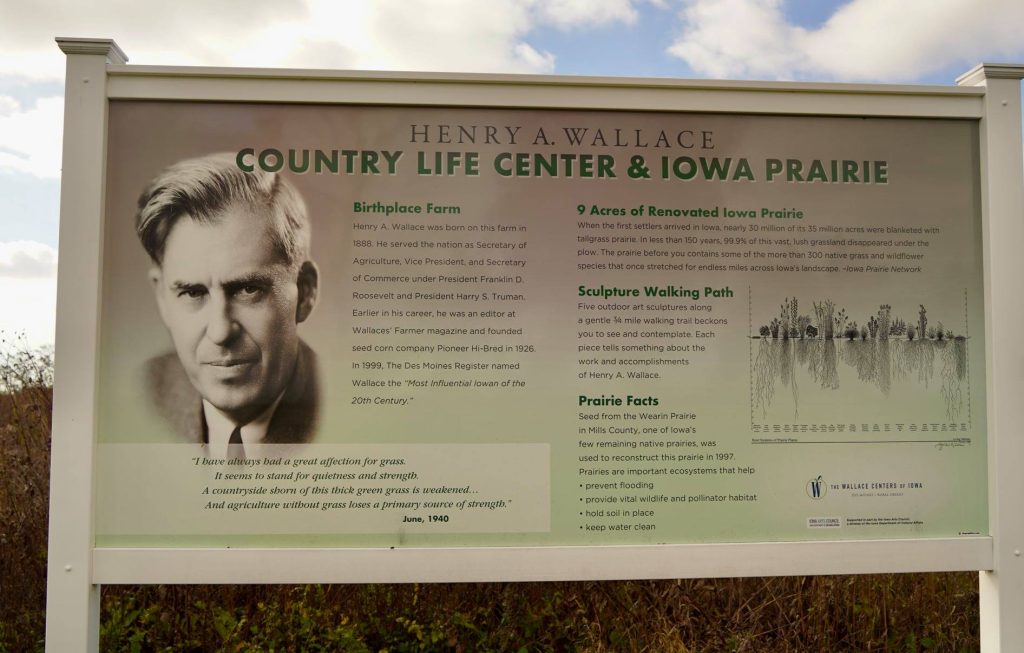
Henry A. Wallace Sign. Photo by: Robin Fortney

Wallace’s Historic Corn Plot. Photo by: Robin Fortney
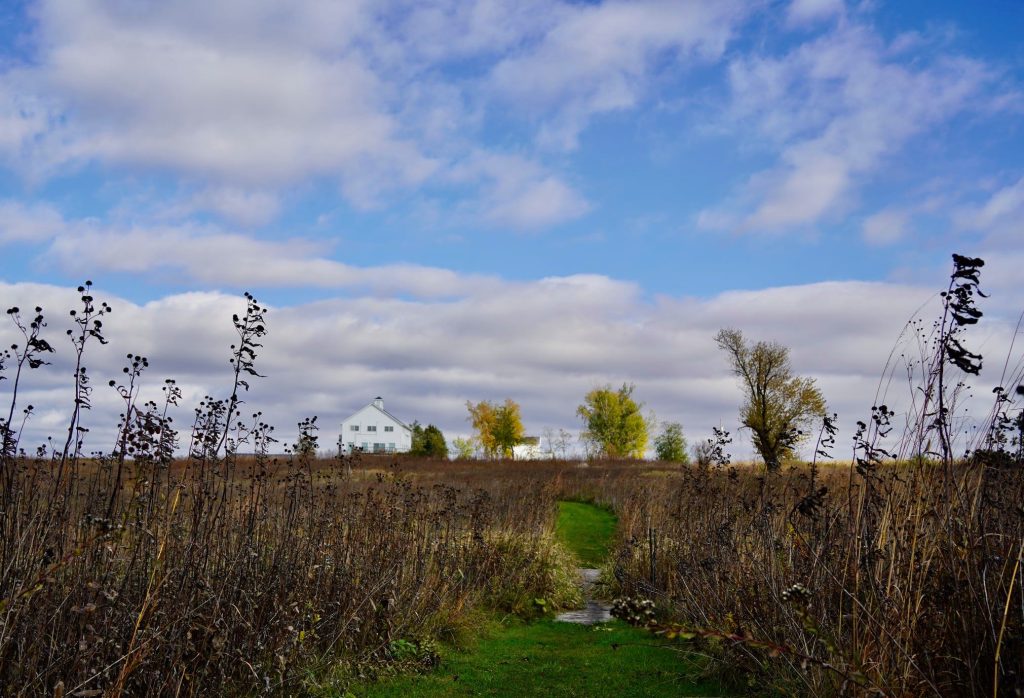
Wallace Homestead gathering barn above the reconstructed prairie. Photo by Robin Fortney
Tom Scherer’s October 2021 snaps—
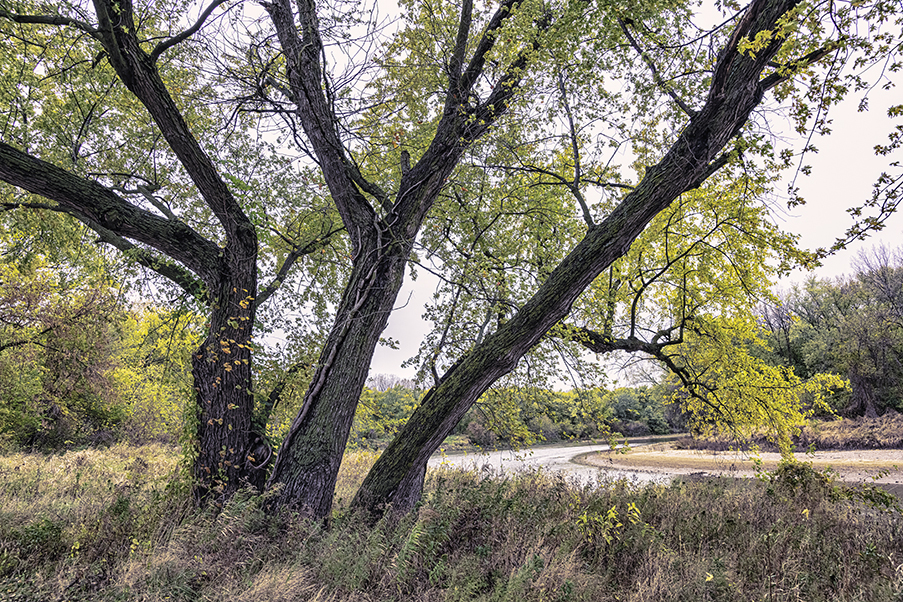
October 2021 Raccoon River inside Water Works Park. Photo by Tom Scherer

October 2021 DeSoto National Wildlife Refuge. Photo by Tom Scherer
Learn more—
Drake University’s Soil 2021 Conference November 17, 2021
The IWL’s history: At the turn of the 20th century, uncontrolled discharges of industrial waste and raw sewage, unrestricted logging, and soil erosion threatened to destroy the nation’s most productive waterways. The country’s forests, wetlands, and wilderness areas were quickly disappearing. In 1922, 54 sportsmen declared that it was “time to call a halt” to this destruction. Aware that action – not just talk – would be necessary to solve these problems, the group decided to form an organization to combat water pollution and protect the country’s woods and wildlife. As a reminder of their purpose, they named the organization after Izaak Walton, the 17th-century English angler-conservationist who wrote the literary classic The Compleat Angler.
“Defenders of Soil, Air, Woods, Waters & Wildlife”
Continue to Stay Safe and Stay Engaged…
Save our Streams—On-line training to become a certified Izaak Walton League’s Save Our Stream monitor
Click Here to learn more about Save Bloody Run!
Stay tuned for 2022 “Thinking Like a Watershed” program details…
Links to 2021 presentations are here:
—This is the video link: “Heartland Heroines” Thinking Like a Watershed ~ Robin Moore & Denise O’Brien— June 1, 2021
—This is the video link: “Planting Seeds to Grow Vibrant Communities” Thinking Like a Watershed ~ Chris Deal & Art Cullen— May 4, 2021
How Jefferson, Iowa’s Chris Deal is working with California Rep. Ro Khanna and others to grow vibrant rural communities in the Heartland with perspectives from Pulitzer Prize—winning journalist and editor of The Storm Lake Times, Art Cullen.
—This is the video link “Watershed Bridges— Green to Blue”: Thinking Like a Watershed ~ Vicki Nichols Goldstein & Seth Watkins— April 6, 2021 How improving soil health and water quality in Iowa and other inland states benefit watersheds that provide critical services from land to sea.
—This is the video link “Local Heroes in Howard County”: Thinking Like a Watershed ~ Neil Shaffer & Hunter Slifka— March 2, 2021 How they have incorporated several thousand acres of land under conservation programs–the largest percentage in Iowa.
—This is the video link “The Accidental Conservationist”: Thinking Like a Watershed ~ Wayne Fredericks— February 2, 2021 How an Iowa Farmer is Improving Natural Capital while Increasing Profits with Conservationist and Farmer, Wayne Fredericks from Mitchell County, Iowa.
— Izaak Walton League’s Outdoor America articles on line.
—About water quality monitoring and research, check out The University of Iowa’s Chris Jones blog who has published several articles on where Iowa stands with regards to soil health and water quality.
—Wait no longer to watch, re-watch and share PFI’s full-length film, “Livestock on the Land“. Please help us get this to as many viewers as possible – farmers, eaters, citizens and policymakers.
—Iowa Farmers Union Events, check out their amazing weekly webinars…
—Iowa Environmental Council’s Event page is packed with fabulous opportunities to learn more from their organization and others.
